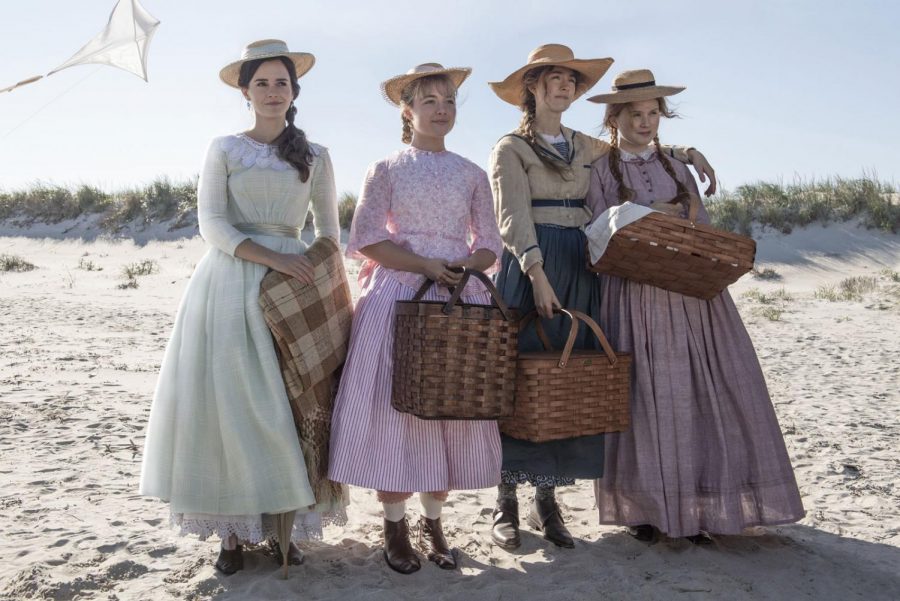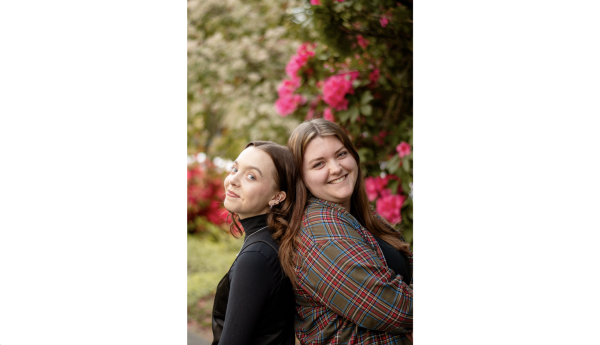“Little Women”: Sixth Time’s the Charm
Lady Bird director Greta Gerwig was one of many “snubbed” during this year’s Golden Globe nominations.
Remaking a classic film is challenging. Dozens of times we’ve witnessed directors try their hand at remakes only to face box office rejection (think 1998’s “Psycho”). So it should be even more challenging to successfully create the sixth cinematic version of a 152-year-old story. With “Little Women,” however, director Greta Gerwig manages to retell the story in a fresh, modern way that revitalizes the time-honored classic.
Gerwig’s take on “Little Women” begins by turning the story’s timeline on its head. Louisa May Alcott’s original 1868 novel consisted of two books separated by a number of years, and Gerwig’s film uses this separation of time to its advantage. The film cuts between the two volumes in a way that drives the sometimes sleepy plot forward with a sense of purpose.
To convey the sense that the narrative is shifting between two periods of time, the film uses different shades of light. Scenes that come from the first volume of the novel bask in a warm glow, while scenes from the second volume are cast in a more subdued tone. Beyond the practical use of light for the sake of indicating time, the lighting serves to differentiate between the warm glow of childhood and the less magical reality of adult life.
While the technical elements of the film are interesting enough in themselves, the acting and writing are what make the movie special. When I arrived at the theatre to watch “Little Women,” I’ll admit I was skeptical. The 1994 version has been one of my favorite movies since I was five, and I was afraid to see the characters I loved so much played by different actors. In what world is Jo March played by someone other than Winona Ryder? Emma
To my delight, I completely forgot about the 1994 version of “Little Women” while I was in the theatre. Laura Dern’s Marmee is just as caring as Susan Sarandon’s rendition, and she brings a new sense of relatability to the character. Eliza Scanlen plays Beth with as much compassion as Claire Danes, while producing more warmth in her character. Timothée Chalamet’s Laurie is just as joyfully enchanting as Christian Bale’s version of the character, while Chalamet’s Laurie is far more boisterous.
The actors who truly steal the show, however, are Saoirse Ronan (Jo) and Florence Pugh (Amy). Jo March has always been a strong female character, but Ronan’s Jo has more nuance. She’s strong, but maybe she doesn’t always feel strong. She believes in herself, but sometimes it’s not so easy for her. She wants to be strong on her own, but she’s lonely. She’s the tough Jo of the book and previous films, but she’s a modern Jo with complexity.
I’ve always loved Jo March and she’ll always be my favorite character in “Little Women,” but the character who I was surprised to fall in love with was Amy March. In the book and films predating Gerwig’s, Amy is the villain. She’s selfish and irritating, not to mention the fact that she burned Jo’s manuscript when she didn’t get what she wanted.
So imagine how surprised I was when I found Florence Pugh’s version of Amy utterly endearing. Yes, she still burns Jo’s manuscript, and she’s still a bit selfish, but she’s a complex character who can be related to for more than her flaws. She cares about her family and she wants to do what she can to help them. She wants to follow her dreams, be happy and leave a positive impression upon the world. She’s not the villain anymore—she’s the hero.
It may not seem revolutionary or relevant, but somehow, 152 years later, “Little Women” remains current. It’s a story about women fighting to be heard and to be seen, be it white women in Civil War America. It’s a story not unlike Greta Gerwig’s own fight to become a respected filmmaker in a male-dominated industry.
The sad truth is that “Little Women” remains a successful story because its core theme of women fighting to be respected isn’t something that the world has gotten past. The story spoke to women before me and it will probably speak to women after me. Some versions, however, are more successful than others. Greta Gerwig’s version not only successfully retells the story, it also successfully revitalizes it, creating the best version of “Little Women” since 1868.
Lara may be reached at [email protected]










